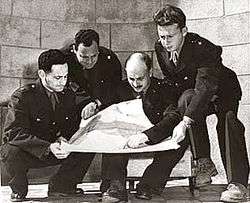Yehoshafat Harkabi

Yehoshafat Harkabi (Hebrew: יהושפט הרכבי, born 1921, Haifa; died 1994, Jerusalem) was chief of Israeli military intelligence from 1955 until 1959 and afterwards a professor of International Relations and Middle East Studies at the Hebrew University of Jerusalem.
Biography

Harkabi had a good command of Arabic, a deep knowledge of Arab civilization and history, and a solid understanding of Islam. He developed from an uncompromising hardliner to supporter of a Palestinian state who recognized the PLO as a negotiations partner. In his most well-known work Israel's Fateful Hour, Harkabi described himself as a "Machiavellian dove" intent on searching "for a policy by which Israel can get the best possible settlement of the conflict in the Middle East" (1988, p. xx) - a policy that would include a Zionism "of quality and not of acreage" (p. 225).
Following his military career, Harkabi served as a visiting professor at Princeton University and guest scholar at the Brookings Institution. He was Maurice Hexter professor and director of the Leonard Davis Institute of International Relations and Middle East Studies at Hebrew University of Jerusalem.
Awards
In 1993, Harkabi was awarded the Israel Prize, for political science.[1]
Published works
- Harkabi, Y. (1974). Arab Attitudes to Israel. Transaction Publishers. ISBN 0-85303-157-6
- Harkabi, Y. (1975). Palestinians and Israel. Transaction Publishers. ISBN 0-87855-172-7
- Harkabi, Y. (1977). Arab Strategies and Israel's Response. Free Press. ISBN 0-02-913760-8
- Harkabi, Y. (1978). Three Concepts of Arab Strategy. Anti-Defamation League of B'nai B'rith. ISBN B0006WY3PU
- Harkabi, Y. (1979). Palestinian Covenant and Its Meaning. Frank Cass Publishers. ISBN 0-85303-206-8
- Harkabi, Y. (1981). The Palestinian National Covenant (1968): An Israeli Commentary. ISBN B0007J3GFA
- Harkabi, Y. (1982). The Bar Kokhba Syndrome: Risk and Realism in International Relations. New York, NY, Rossel Books. ISBN 0-940646-01-3
- Harkabi, Y. (1985). Al Fatah's Doctrine. In The Israel-Arab Reader: A Documentary History of the Middle East Conflict. T. W. Laqueur and B. Rubin (Eds.). New York, NY, Penguin Books. ISBN 0-87196-873-8
- Harkabi, Y. (1988). Israel's Fateful Decisions. I.B. Tauris. ISBN 1-85043-094-2
- Harkabi, Y. (1989). Israel's Fateful Hour. HarperCollins. ISBN 0-06-091613-3 (Chapter 5: Nationalistic Judaism)
- Harkabi, Y. (1992). The Arab-Israeli Conflict on the Threshold of Negotiations. Center of International Studies, Princeton University. ISBN 99924-0-953-3
See also
References
External links
- On Making Peace Despite the Risks - Ze'ev Schiff
- Heads of A'man, Mossad, & Shin Bet